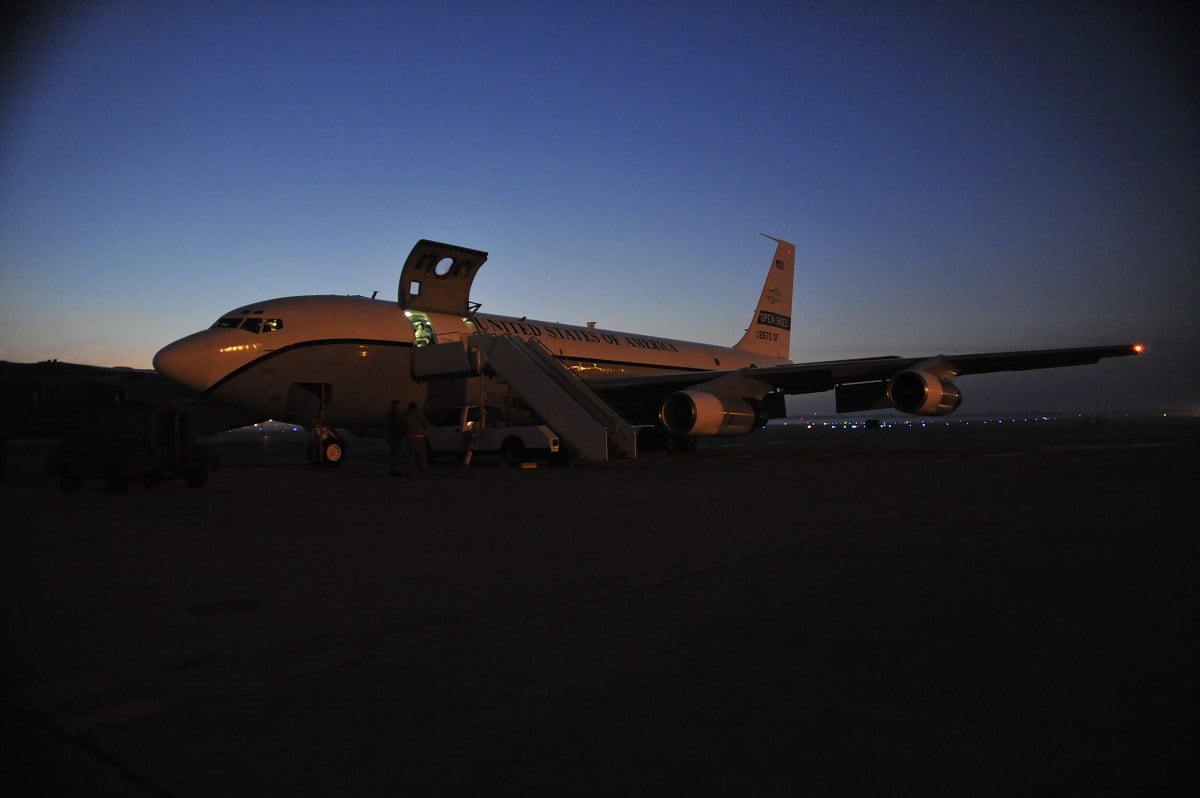OFFUTT AIR FORCE BASE, Neb. — The U.S. has yet to make a determination on whether to remain in the Open Skies arms control agreement, but Defense Secretary Mark Esper is warning that America “can’t continue” to tolerate Russian “noncompliance” with the treaty.
“So far, no formal final decision has been made. In due course we will be getting together to do that, to decide the best path forward for our nation,” Esper told reporters while visiting U.S. Strategic Command on Thursday.
“I take no view one way or the other with regard to arms control in general. They should be in our national interests if we’re going to enter an agreement or continue an agreement. The place where we begin is compliance with what’s happening on those agreements."
The Open Skies agreement, ratified in 2002, allows mutual reconnaissance flights over its 34 members, including the U.S. and Russia. The two nuclear powers have quarreled over the treaty in recent years, including fights about what camera equipment should be allowed on the planes and U.S. accusations that Russia is restricting flights over Kaliningrad.
RELATED

The secretary noted that while in Brussels last week for a NATO ministerial meeting, he pushed on allies to take a tougher line with Moscow when it comes to the Open Skies agreement.
“I said to them very clearly on this topic: ‘We all need to start calling out the Russians for their noncompliance.’ The Russians have been noncompliant in the treaty for years, specifically when it comes to their allowance of overflights and near flights [of] Kaliningrad and Georgia,” Esper said.
“We can’t continue tolerating their noncompliance in the treaty,” he added. “We need to start, once again, with the Russian noncompliance and make sure they get back into the treaty.”
Defense News reported in November that a number of European nations were organizing campaigns to encourage the Trump administration to stay a party to the treaty.
The Trump administration was successful in convincing European allies that Russian noncompliance on the Intermediate-Range Nuclear Forces Treaty could no longer be tolerated, leading to a unified statement from NATO in support of exiting that regime.
But Rose Gottemoeller, who served as undersecretary of state for arms control and international security at the U.S. State Department during the Obama administration before becoming deputy secretary general of NATO from 2016-2019, thinks getting that kind of consent on Open Skies will be more difficult.
The nations involved in Open Skies see the treaty as “serving a number of purposes,” Gottemoeller said at a January dinner hosted by the Defense Writers Group. Not only do they “get information that is completely unclassified and shareable and they can make good use of it in any number of policy arenas,” but the treaty also serves as “an important means of building mutual predictability and confidence” and a tool for “real-time diplomacy.”
“Those are the kinds of arguments that they have made to the administration,” she said.
The treaty enjoys enough support in Congress that the he 2020 defense policy bill, signed by Trump in December, requires the president to consult Congress and wait four months before withdrawing. And the 2020 defense appropriations bill provides $41.5 million to begin replacing the aging Boeing OC-135B aircraft that America uses for its Open Skies flights.
Aaron Mehta was deputy editor and senior Pentagon correspondent for Defense News, covering policy, strategy and acquisition at the highest levels of the Defense Department and its international partners.








